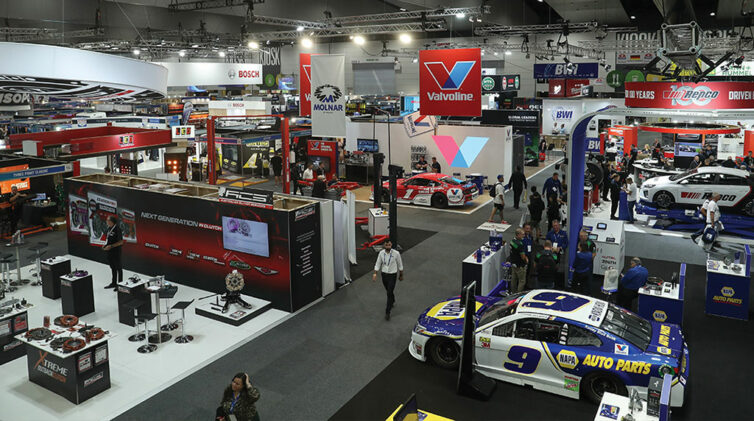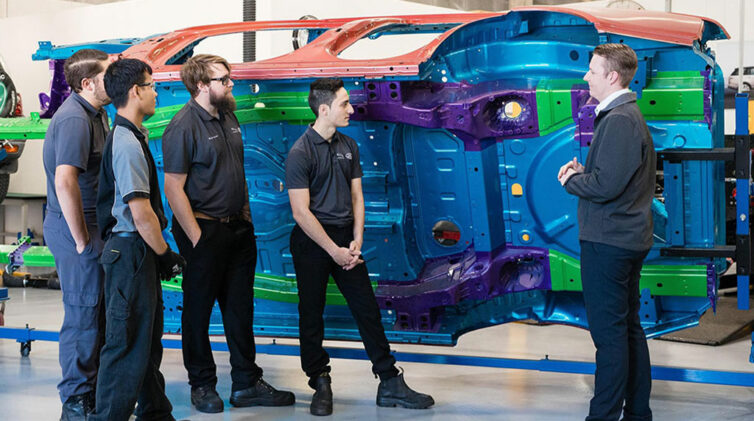FCAI chief executive Tony Weber issued a statement saying that 85 per cent of independent outlets had access to vehicle technical data.
But the Victorian Automobile Chamber of Commerce (VACC) executive director Geoff Gwilym told GoAutoNews Premium that the assertion by the FCAI chief executive Tony Weber was “crap”.

The issue, brought to the forefront at the recent Autocare 2018 conference held in Sydney by the Australian Automotive Aftermarket Association (AAAA) and attended by the Australian Competition and Consumer Commission (ACCC) chief Rod Sims who said the ACCC backed the case put by the independent repairers.
Mr Weber responded: “With 23,000 independent outlets already having access to information on 85 per cent of the market via the FCAI website and other sources, where is the market failure that we are trying to address?
“With independent repair operators already servicing a vast majority of the Australian car fleet, the sector is already accessing important information to enable it to carry out service activity. Otherwise, how are these vehicles currently being serviced?”
But Mr Gwilym said: “I would say the 85 per cent figure is just crap. The FCAI refers to links on its website and to the data held by the VACC – but data codes are not available to the VACC despite us having one of the biggest automotive libraries in Australia.”
Mr Gwilym said the issue is that everytime a new car is made “it (OEMs) provides less and less access to independent repairers, particularly the codes required to solve system problems”.
“It means OEMS are happy to sell components to the repair industry, but then want to slug them again by coding them so they work.
“So we see a widening gap between the amount of information that the repairers need to access and the amount that is available,” Mr Gwilym said.
Mr Weber said that independent repairers should make greater use of available resources before the sector is compelled to use a burdensome mandatory regime.
The Australian Automotive Dealers Association (AADA) said the time for debate is over.

Its CEO, David Blackhall, told GoAutoNews Premium that both minister Michael Sukkar and the leader of the opposition, Bill Shorten, have publicly stated that they will adopt the ACCC recommendation for a mandatory code.
“This says to us that after seven years of discussion the time for debate about the need or otherwise for a mandatory code is over, without in any way minimising the fact that there definitely is two sides to this,” Mr Blackhall said.
“Our focus at the AADA is to participate fully in the shaping of the code ensuring our members interests are protected to the maximum extent possible.
“We are also working hard to keep our longer term goal in mind – a specific automotive code that reshapes the post-manufacturing regulation of the retail new car business.
“A wise advisor once told me that in Canberra the rule is ‘if you are not at the table, then you risk being on the menu…’ The AADA intends to be at the table.”
At the AAAA conference, ACCC chairman Rod Sims told the audience that the watchdog would assist in the development of a mandatory scheme for AAAA members to get access to the technical information needed to fix cars “and to compete”.
He was backed by assistant minister to the treasurer Michael Sukkar MP who, in his address at the same conference, said a proposed scheme would “ensure competition and fairness for Australian consumers”.“We want to drive reform to ensure the automotive industry remains competitive and fair to consumers and businesses alike,” Mr Sukkar said.
“In the case of the Australian automotive market, there is a strong case for change and particularly as it relates to car servicing.”
But the FCAI, representing OEMs, this week said a mandatory regime is not required.

Mr Weber said: “If the government were to consider this path, it carries considerable responsibility and necessary investment by all automotive repairers.
“The government needs to ask how much additional red tape is needed to address a perceived future problem.
“To mandate this process will require vast amounts of regulation and a new bureaucracy to police the system to ensure consumers are protected as vehicles become more and more complex.”
In reference to a 2012 agreement between the industry and independent repairers, Mr Gwilym said it had “failed miserably”.
“The FCAI has failed to address multiple claims of data issues provided to them by us. There are more than 100 issues that we have told them about over the past 12 months and we have yet to receive a response to any of them.
“The process for resolution to repair information has failed. The FCAI is part of that failure.
“I would say they are being no help to independents and they are being no help to dealerships. They aren’t helping anyone and with the removal of manufacturing in Australia, there’s a question mark about what their role really is.”
Now the VACC, the AAAA and Motor Trades Association of Australia (MTAA) want a new draft code to be adopted.
“This argument is heating up. We want the responsible minister (Sukkar) to make clear the intentions of government about moving to a mandated code,” Mr Gwilym said.
“The MTAA has provided a draft code to the minister, and the industry is waiting for the minister to take a stand.
“We agree with the MTAA’s draft code because it is balanced and doesn’t undermine the role of dealerships or independent repairers. It tries to get a level playing field where these players can work in harmony – which they have for the past 100 years.
“This division in the industry shouldn’t exist. They have worked collaboratively for decades and we hope they will continue to do so.”
Mr Gwilym said that the VACC and other parts of the industry were also concerned about reports of people lifting data codes collected by stripping a vehicle in another country.
“This is akin to a black market as I hear that this data is being made available to repairers,” he said.
“We don’t like it, we don’t support it but this (situation) has been created when OEMs do not supply data codes to the industry – how else will they be able to repair cars?”

WHAT’S THE ISSUE?
Independent repairers want access to the repair data used by OEM and OEM- franchised dealer technicians.
WHO WANTS THE DATA?
The 23,000 independent repairers. They say the data allows them to repair vehicles and creates a level playing field for consumers to freely choose between themselves and franchised repairers.
WHO OWNS THE DATA?
The 3500 OEM franchised dealers. OEMs say it’s their property and franchises then pay for its access, buy diagnostic equipment, train its technicians and service cars
for customers.
IS THERE AN AGREEMENT?
No. In 2012 there was a code established to find a middle ground but both sides say it broke down. There is now a draft code with the federal government that aims to find solutions.
By Neil Dowling













 Read More: Related articles
Read More: Related articles

